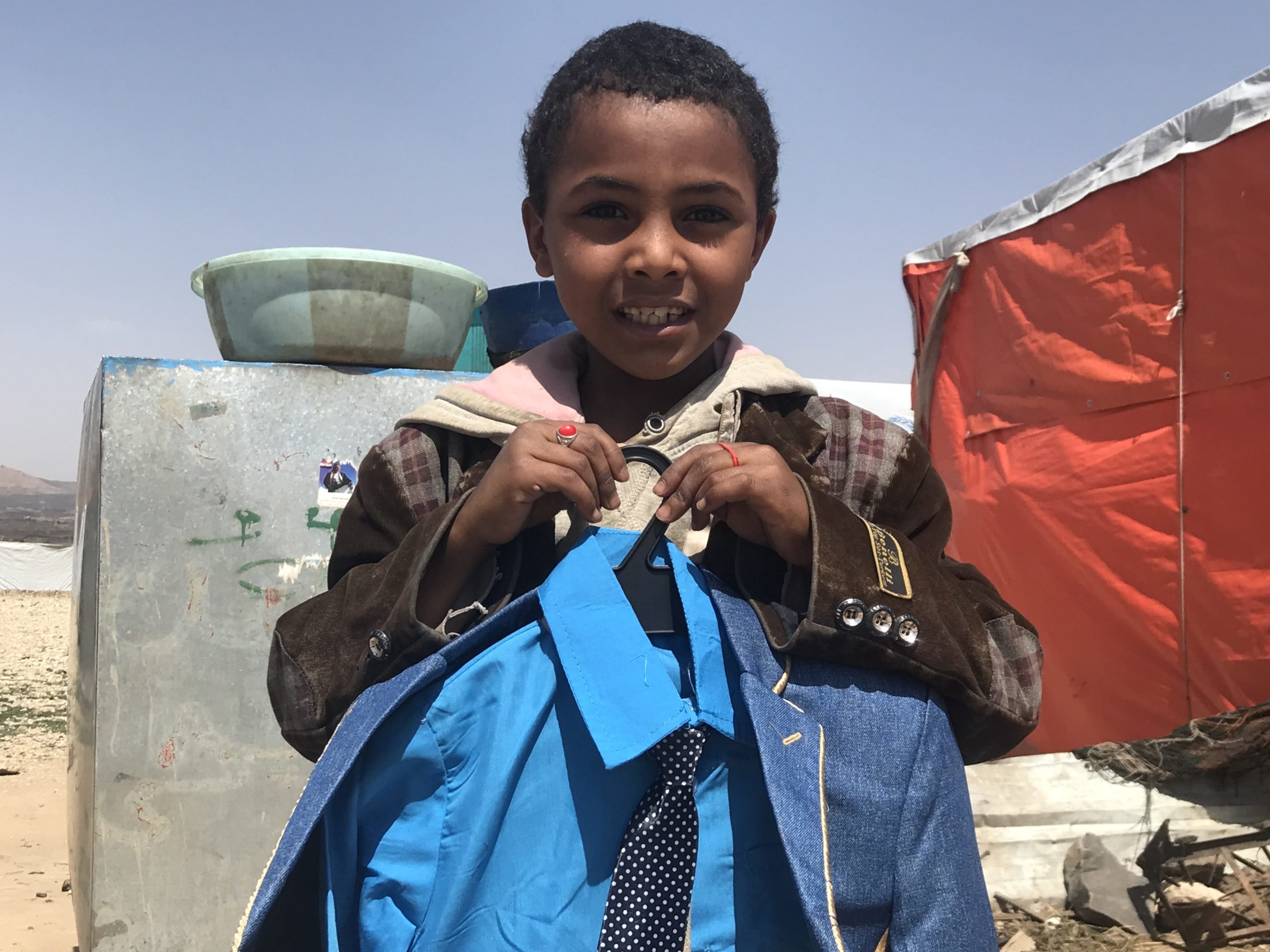
“I love to wear new clothes in Eid,” says Ghareeb. The seven-year-old and his two brothers and two sisters were forced to flee their home in Sa’ada. Now they all live in one tent in Kharif, Yemen, a site for internally displaced people in the country. ©UNHCR/Shadi Abusneida
By Lynn Al Nasser
For Muslims around the world, the Holy Month of Ramadan is a time of reflection, gratitude and patience. It is a time for families and communities to gather and break their fast (iftar) together. For 30 days, Muslims are required to fast from sunrise to sunset, consuming no food or water as they continue with day-to-day life.
It is a time to put themselves in the shoes of people who live a harsher reality every day, a reality where food and water are not a guarantee, it re-minds them to be grateful and patient.
During the Holy Month of Ramadan, love, kindness and charity are prioritized. In fact, during this time, Muslims make donations known as Zakat. Zakat is the mandatory donations given by Muslims who meet the necessary criteria of wealth each year, particularly to those in need.
“Ramadan is a month of compassion, renewal and service. The resilience of refugees inspires us and reminds us that all the actions we take, big or small, can have an impact.”
Filippo Grandi, United Nations High Commissioner for Refugees
Once the Holy Month of Ramadan is completed, Muslims celebrate Eid al-Fitr (Festival of Breaking Fast), one of the most joyous times of the year. For many Muslims, they are truly blessed to be surrounded by family and loved ones during this Holy Month. However, for thousands of refugees and displaced people, Ramadan is a memory of a life that was lost, as they will observe this Holy Month separated from their families and communities, far from their homes.
UNHCR hopes to help bring light to the lives of refugees by providing a wide range of humanitarian programs through cash assistance. Cash assistance is primarily spent by refugees on rent, food, and health care. Additionally, to mark the Eid al-Fitr holiday at the end of Ramadan in 2019, UNHCR distributed clothing and shoes to 350 children in the Kharif camp in Yemen.
UNHCR has pioneered the leveraging of Zakat and established its Zakat program to aid the most vulnerable displaced families.
UNHCR works tirelessly on the ground to provide life-saving support to refugee and internally displaced populations. We thank you for opening your hearts and your generous support to refugees, who are in desperate need of your Zakat and the gift of hope.
Quick facts
- Ramadan is based on the lunar calendar, which consists of a 12-month year of approximately 354 days, so each lunar month moves 11 days each year. In 2020, it will start on April 23.
- Eid Al-Fitr, is announced on sighting of the moon, which varies from region to region.
- UNHCR’s Zakat initiative is backed by five fatwas from leading Islamic scholars and institutions and is subject to rigorous governance, ensuring transparency at every step, from donation to provision of assistance. UNHCR has adopted a digital-only approach to paying Zakat, ensuring security, efficiency, transparency and complete peace of mind. 100% of your Zakat obligation goes directly to eligible refugees.



